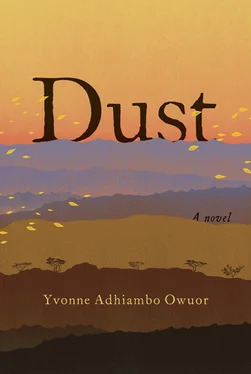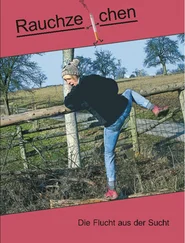“A Fcottish fentleman,” Babu confided. “Not really Englif.”
They shared a knowing and rather contented laugh as twilight crept in.
Outside murmurs. A woman hurled an epithet. Another cackled in response.
“Fey are not af far in fe fourney af ve are,” Babu whispers.
“Who?” Isaiah asks.
“Fem. Feofle here. But ve accomfany fem. Carrot and ftick, carrot and ftick.”
A donkey brayed, a cock crowed, a thin-voiced and distant muezzin called someone to prayer. Bewilderment engulfed Isaiah and flushed his skin. He had forgotten how far away from home he was.
Later, he would leave Babu’s shop with a room for the night, three tins of corned beef, three cartons of milk, a SIM card, a small box of sixty tablets, shaving cream, two razors, a rusted pair of large scissors, two tins of condensed milk, a container of yellow curry with brown and black spices that would destroy parasites in food, water, and the soul, a small green bucket, and the hopeful news that if he did not mind riding with livestock destined for an abattoir, a lorry leaving the following evening was headed in the direction of Wuoth Ogik.
When Isaiah saw his roundish room with its doum-palm ceiling, a safari bed leaning too far to the left, two unlit kerosene lamps, a box-shaped dark-gray creature the size of a small cat fleeing at his approach and escaping through an invisible hole, and a shattered oval mirror above a rudimentary green plastic basin — the bathroom — he was seized by a certainty that he should not have left England.
“I’ll be going to Kenya,” Isaiah had told his mother, Selene, over two years ago, after an old book had reached him through the post. Its owner’s name was etched in the blank page at the front, and a painted image nestled in its inner pages. Selene was at that time being carved up by an odious cancer. She had said nothing while huge tears tumbled down to stain her hospital gown. He canceled his travel plans.
Now here he was in Kenya.
Isaiah dreams that night of cold and gray: the sensation of skimming pinnacles of splendid corporate conquests, just before tumbling down and crashing into the earth, clutching pennies, residues of a big gamble lost. Cold and blue: textures of loss, of seeking and never finding. Abandonment. Cold and red: the color of grasping at air, of hoping to be found or chosen or wanted for more than a season, for more than what he owned. Cold and cracked: the impossible-to-reach broken parts of the soul. Cold and hard: rebuilding. But when he thought he had won again, irascible life currents drove him away and would not let him return, not even once.
Fog — amalgam of mistlike griefs. Fear — the state of being haunted, possessed by unrelenting uncertainties. He had thought to pierce the mists — discovered war zones — and became a voyeur with a camera, but whenever he surfaced for air, Isaiah ran. Streets, beaches, indifferent town marathons; running past finish lines, teeth bared, fists pumping, striving to elude disgrace’s phantoms.
He dreams of his mother, her death, its horrid stillness. How, later, he and his stepfather, Raulfe, had taken her life-things and stored them in boxes, swept her closets and cupboards clean and sent her clothes to charity shops. Selene had bequeathed her remaining money and a wedding ring to Isaiah. She had left her other jewelry, letters, and novelty items to the care of Raulfe, who before Isaiah could react, had sealed them all in a safe deposit box, to be opened only after he was dead, and Isaiah had turned sixty.
Isaiah had confronted his stepfather: “Why?”
Raulfe had hobbled away, humming a broken version of “It Is Well with My Soul.”
Inside Isaiah a barrage of feeling had exploded: Rage-Hurt-Defiance. Needing to get away, Isaiah chose to cross skyways to retrieve the first ghost he had ever known, and to find a way to bring it back home, where it belonged.
Still.
The fog — amalgam of mistlike griefs, and fear — the state of being haunted, possessed by unrelenting uncertainties.
SPARE PASTURES, EPHEMERAL WATERING HOLES. DUST-FILLED cupules containing red, black, green, and white pebbles speckle the land; unfinished sand games entice drifters to sit and play. Fresh dung tracks on gold-flecked violet stones. They zigzag. Pilot, Nyipir, and Ajany, carrying Odidi between them, while Nyipir intones: March, march, march, left turn, march, march, halt . The coffin edge digs into Ajany’s right shoulder. They stumble past two giant milkweed bushes with flamboyant fleshy leaves oozing white life. Beneath a knobby gold-green acacia, they steady the coffin and lower it to the ground.
Weak-kneed, her hair matted, and unable to let go of tenuous contact, Ajany huddles down right there, studying the dust of home, the progress of safari ants in an evening that stinks of wretchedness.
Nyipir Oganda looks down at his daughter before trundling away to retrieve her travel bags. The pilot follows him, clasps and unclasps his hands before saying, “ Mzee , condolences. Sorry.”
Nyipir nods. He hauls down orange and red luggage and nods at the pilot over and over. And then Nyipir waits, a solitary form. Soon, the plane taxies, wobbles, and then lurches skyward. The pilot circles Wuoth Ogik, offers a lilt and waggle. Nyipir brings his hand up to his forehead and returns the salute.
Five kilometers away, a slow-moving dust-devil giant lops over the land. Ten minutes later, the formerly green, now rust-colored family Land Rover, long in tooth and loud in rattle, bounds toward the waiting pair. Nyipir faces the car, not breathing. The Land Rover creaks to a stop and emits the smell of a burning clutch. Two people emerge: Galgalu, who had grafted himself onto the family before the children were born, and Nyipir Oganda’s wife, Akai Lokorijom.
She flows like magma, every movement considered, as if it has come from the root of the world. Tall, willowy, wasp-waisted, her breasts still large and firm, she is made of and colored by the earth itself. Something ferocious peers out of dark-brown eyes, so that even her most tender glance scalds. Her voice, a bassoon-sounding, gravel-colored afterthought. At unpredictable moments, for nameless reasons, she might erupt with molten-rock fury, belching fire that damaged everything it encountered. Akai was as dark, difficult, and dangerous as one of those few mountains where God shows up, and just as mystifying.
When he sees Akai, Nyipir’s hands pour sweat. Ajany’s bags slip from his grip and tumble to the ground.
Galgalu, carrying a lit kerosene lamp behind Akai, lifts a hand to Nyipir in greeting, but Nyipir’s eyes are fixed on the bald patches on Akai-ma’s scalp where she has torn out her hair. Scratches and tear marks on her face. Blood cakes her body in thin strips. One of Nyipir’s AK-47s, the four-kilogram 1952 with a wooden butt stock and hand guard, is strapped to her body, cradled in a green kanga with an aphorism written on it: Udongo uwahi umaji , “ Work with wet clay.”
Nyipir shambles toward his wife. He is preparing to steer away from echoes of a conversation that started one day in August 1998, after a distant-living coward detonated a bomb in Nairobi. He should have known it was a forewarning.
“My son!” Akai-ma had wailed at him then, while a BBC Radio news bulletin retold the story of an explosion in Nairobi. “I want my son.”
“He’s safe,” Nyipir had answered.
Akai Lokorijom had said nothing. Disappeared, reappeared — Vaselined and fresh, with a small bag, ready for a journey.
“Now where’re you going?” Nyipir had asked.
“To find my son.”
Nyipir grunted, “I’ll go.”
He had started toward Nairobi, the city that had tried to kill him. He’d made it past shifting dunes into the North Horr airstrip when he bumped into Ali Dida Hada, who was also on his way to Nairobi, summoned to the Kenya National Police headquarters at Vigilance House.
Читать дальше











